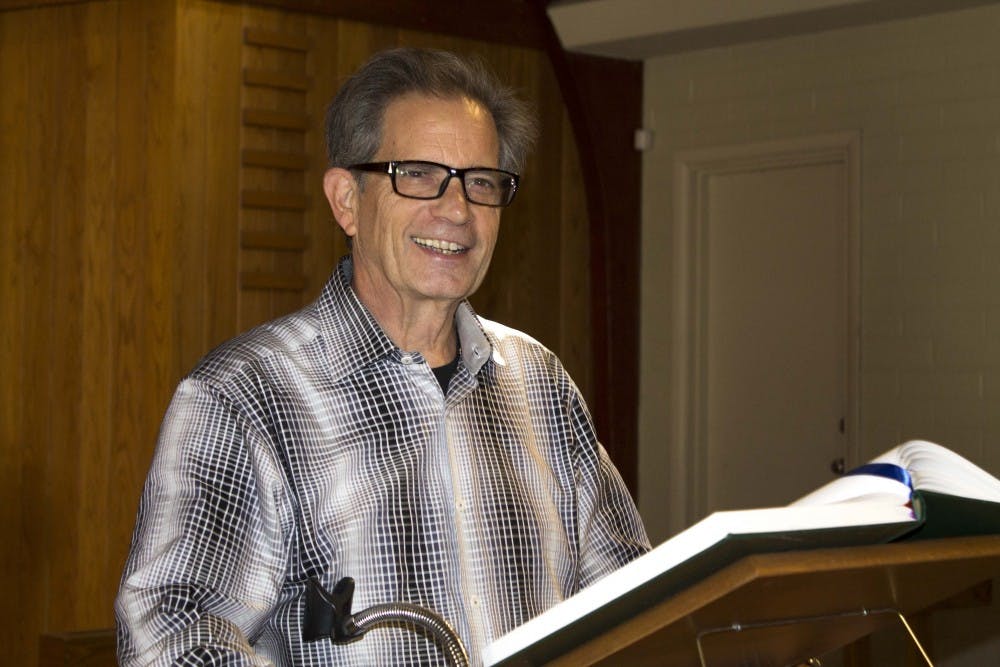President Donald Trump said he proposes to repeal an amendment limiting political speech for non-profits, but one ASU church said eliminating the law wouldn't change its legacy of political activism.
At the National Prayer Breakfast Feb. 2nd, President Donald Trump said to religious leaders he would do everything in his power to protect religious political speech, freedom and liberty by repealing Lyndon B. Johnson's 1954 amendment that limits 501(c)(3) non-profit organizations — which include charitable organizations like religious groups and university foundations — from engaging in political speech that endorses candidates.
ASU's Lutheran Campus Ministry Pastor Gary McCluskey doesn't think that it's the responsibility of a church to endorse a candidate even with his the church's history of social activism.
McCluskey, said operations would not change if the Johnson Amendment was repealed. Even with the amendment in place, he said the church has served as a place for social activism.
"This has always been a church that hasn't been shy about speaking about issues of the day," McCluskey said. "During the Vietnam War, if you were getting a license to be a conscientious objector, it was here. There used to be a pastor who frequently got arrested protesting here during peace demonstrations during the Vietnam War."
That pastor was John Peterson.
Peterson, along with other clergymen during the Vietnam War, fought to resist the social turbulence that existed within ASU's Tempe campus by leading demonstrations and marches, according to an archived 1993 report from the church.
The report said many young "drifters" were sent to the University Lutheran Church where Peterson received distressed phone calls from parents asking if their children were safe. The report mentions that some of these clergymen faced backlash for their political stances.
Despite Trump promising to repeal the Johnson Amendment, McCluskey said the church's fight for human rights remains unchanged, but said he thinks it would be inappropriate to endorse or oppose a candidate.
"I don't see anything changing because we have always felt that we have freedom here," McCluskey said. "We have stood up for what is right and inclusive to all, even without telling someone who to vote for or against. We have brought in various candidates from ranges of political beliefs. I can see Jesus as someone who is both liberal and conservative at times."
Adam Chodorow, associate dean for strategic planning and Sandra Day O'Connor law professor, said that Johnson Amendment prevents churches from endorsing candidates, further enforcing the fact that being involved in politics should not be deemed as a charitable act.
Chodorow said that you cannot be a charitable organization serving the public good if you are violating the law.
"Depending on the situation, if you essentially violate the law, as opposed to serving the law that can be deemed as a non-exempt purpose," Chodorow said. "Go back to the civil rights movement and churches that engaged in civil disobedience. That behavior was illegal, and there was some risk that those churches could have gotten in trouble."
Alicia Danielson, an ASU Lutheran Campus Ministry said her experience with the church has been one that exemplifies political inclusivity without enforcing political agendas.
"We are an open community and we can say things like, 'It's not okay that the government cuts funding for Planned Parenthood,' because that attacks the marginalized and disenfranchised community ... we aim to provide services for those disenfranchised communities"
Danielson said one of her first experiences with the ASU Lutheran Church was when she saw an openly gay couple being welcomed through the church doors. She said that inclusiveness is what the community is about.
"This allows us to have conversations about politics and religion without being afraid that someone will say no," Danielson said. "Even if we could say who to vote for, we wouldn't."
Reach the reporter at rdomin10@asu.edu and follow @beccanators on Twitter.
Like The State Press on Facebook and follow @statepress on Twitter.




